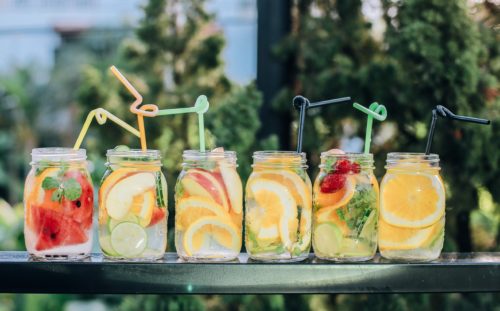
Your drink order, it seems, could be the key to unlocking your personality.
Bartenders reveal what customers’ drink orders say about them, proclaims a Business Insider article. The bartenders in question explain that you’ll look “immature” if you order an overly-sweet drink. Over at Vice, an article claims to have “developed a preternatural ability to determine people’s personalities based on what they drink.” Do you like ale? You might be an oddball.
Baristas have also gotten into personality analysis, suggesting that latte-drinkers are “reflective but indecisive” and an iced coffee order means you’re “assertive and outspoken.”
In fact, the beverage-as-window-to-your-soul trend has extended to all drinks. There are quizzes titled “What Your Favorite Soda Says About You,” “What Your Choice of Tea Says About You” and—yes—”What Your Choice of Milkshake Says About You.”
And while we think it might be a bit of a stretch to say that all strawberry milkshake lovers “take being loyal to new levels,” we agree that you can infer a (little) bit about a human from their sipping preference.
Ad blockers prefer caffeine to alcohol
According to our findings, ad blocking users—the 47% of global users who have an ad blocker installed on their device—are tea lovers first and foremost. This is followed by coffee as the second most consumed beverage.
- 91.5% of ad blocking users drank tea in the last month
- 89.3% of ad blocking users drank coffee in the last month
The third most popular beverage was also a pick-me-up: 68.8% of ad blocking users consumed energy drinks like Red Bull or Monster in the last month.
Ad blocking users drank comparatively little alcohol, with 68.4% consuming at least one beer per month, 64.5% drinking wine, and only 45% drinking spirits like whiskey.
Effect on the brain: caffeine vs. alcohol
While we’re not going to make any daring beverage-based claims—although who knows? maybe strawberry milkshake lovers really are loyal to a fault—these figures inspired us to look into the effects of the two most popular drinkable substances: alcohol and caffeine.
It’s hardly surprising to report that caffeine increases productivity. That’s why so many of us fumble for the coffee pot first thing in the morning: we want to feel that jolt of alertness.
But we were impressed by just how much caffeine actually does.
- Not only does caffeine enhance short-term memory, but it can work to improve memory as we age, while lowering the risk of developing Parkinson’s, colon cancer, and Type 2 diabetes.
- Caffeine increases all of the following: the ability to solve problems requiring reasoning, the ability to focus and concentrate, energy availability and daily expenditure. (Source)
Alcohol, on the other hand, works as a depressant. It’s true that mild alcohol consumption can enhance creative cognition, although “drinking heavily when trying to do anything that requires extreme focus, information processing, clear judgment and memory…might be counterproductive.”
We’re not saying that ad blocking users love of lattes means they’re reflective, or that their English breakfast tea habit means they’re “classy.” But what ad blocking users might lose in terms of occasional bursts of creativity, they make up for with reaping the benefits of enhanced memory and abilities.
To say that the team at AAX is interested in ad blocking users is an understatement. We’re fascinated.
So we decided to consult the mass trove of data that GlobalWebIndex (GWI) keeps about internet behavior in order to tease out some of the particularities of the group. We took our findings and compiled “10 Things You Didn’t Know About Ad Blocking Users,” a study that peers into everything from what they like drinking (which is what you just read about) to preferences for digital content purchasing and frequency of exercise.
The study will be published on January 16, 2020.
- Thought leadership